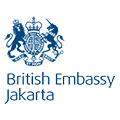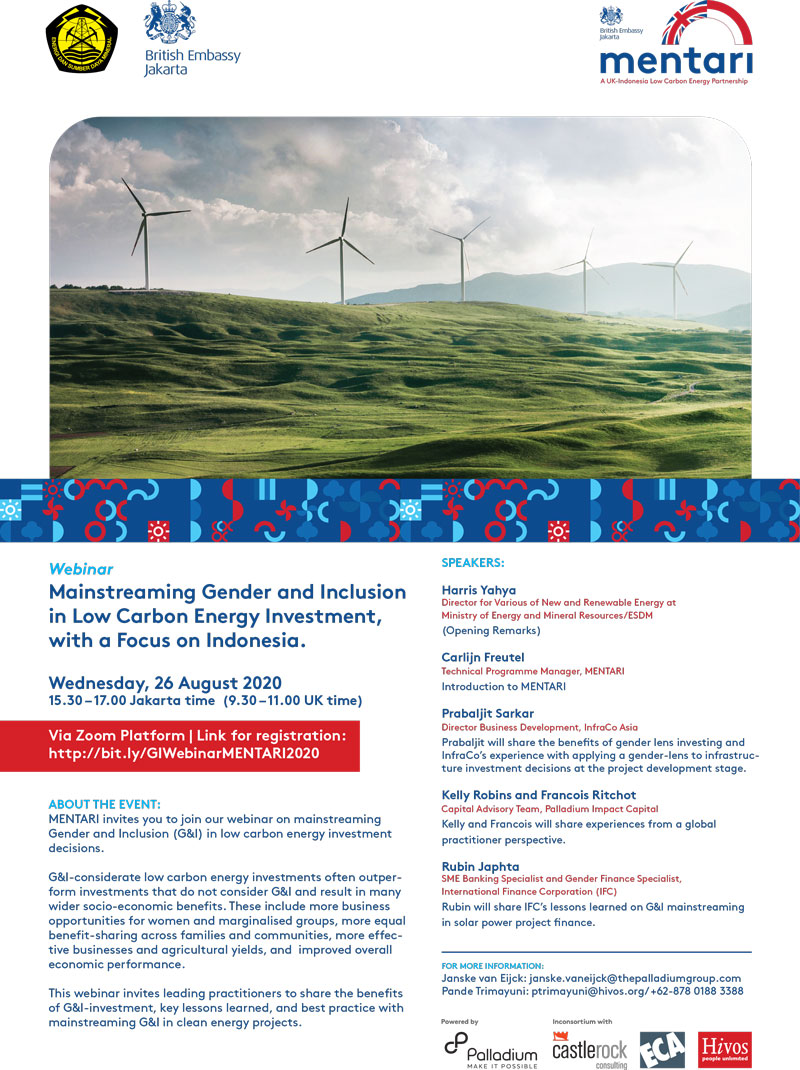Renewable Energy Investment Can Improve Gender Equality in Remote Areas
Jakarta, 26 August 2020- Renewable energy investment not only has a positive impact in providing access to electricity, but also has a good social impact on the community. One of them is increasing gender equality, especially in rural and remote areas.
“Therefore, the integration of renewable energy is needed through the state budget and since 2011, it has had a positive impact on social aspects such as preparing a sense of security and comfort for babies, children and women, as well as increasing additional income for women and ease in carrying out the duties of housewives. . This infrastructure provides opportunities for men and women to play a role in the planning and utilization aspects of renewable energy generation, to become treasurers in power generation and other activities, “said Harris Yahya, Director of Various New Energy and Renewable Energy, Ministry of Energy and Mineral Resources.
Harris’s statement summarizes all the discussions discussed in the “Webinar on Gender Mainstreaming and Social Inclusion in Indonesia’s Renewable Energy Investment,” which was held in Jakarta, August 26, 2020. This discussion featured Carlijn Freutel from Palladium International, Kelly Robbins, Associate Director at Palladium Impact Capital, Prabaljit Sarkar, Director of Business Development Infraco Asia and also Rubin Japhta as Advisory Services Program Manager for IFC’s Financial Institution Group in Indonesia and Gender Finance Specialist for the Asia Pacific region. The discussion was guided directly by Janske van Elicjk, General Inclusion Advisor for the MENTARI Program.
In this webinar, it was revealed that including gender and inclusion is important, it can even make “investment” in the field of renewable energy also quite promising. According to Prabalit Sarkar, in Infraco Asia’s experience, women can play a role in three main ways, namely being the main users of renewable energy to increase energy demand; Become a source of the labor supply chain, an important part of human resources; and women also have a role as stakeholders.
Prabalit cited an example of their project in a province in Myanmar. Infraco Asia has a gridlocked 160 volt solar project where women are driving this project. Starting from being a project staff, a facilitator, and to make sure the voice of community needs is heard. This makes this project dynamic and livelier. In the Philippines, the same is the case for their project in the Lubang Islands and San Isidro Palawan, located 150 km from the city of Manila. InfraCo will undertake a project called Smartsolar off-grid in 2021 to light up 4,000 households with a capacity of 1.28 megawatts. The smart solar project has operated as an open door to economic opportunities for women.
“For example, Sonia is now earning additional income by running a loading station for the project. She, with her business instincts, was also able to afford a feature that would allow her to sell her homemade ice candy. In the same project community, the smart solar grid project health worker, Agnes has increased the provision of medical service production, from capsules to essential maternity care for the people in the island. We have also seen how important access to infrastructure is to increase women’s access to education and economic opportunities, such as the youth council, “said Prabalit.
Meanwhile, Kelly Robbins emphasizes to always include gender and inclusive investment in various fields of investment. One example is through innovative investment structures through loan financing with friendly schemes. The program creates funding from BAC Bank, in Nicaragua, to create new loan products and create a guaranteed fund to reduce the risk of piloting the loan. This loan product for SMEs is not collateralized, but based on historical and cash flow projections, through links to bank deposits and transactional accounts.
“After successful trials in Nicaragua, even during a period of significant political and economic upheaval, the failure rate was zero. It has even encouraged the expansion of this program. Now, Palladium is helping to expand this program in Salvador and Colombia. I am also looking for partners in Indonesia and in South Asia and Asia Pacific,” Kelly explained.
Rubin Japhta also gave an example of an IFC project that provided entrepreneurial training given to women for access to electricity in border areas. They provide materials on practical marketing and sales skills for women. This training has also succeeded in increasing the self-confidence of the female participants, as well as increasing their understanding and knowledge of the economic benefits of solar power products.
“They were able to convey economic concepts that are not always easy to understand in a very simple way. So, the people can understand what the economic and health benefits and health benefits from adopting this technology. In India, we have reached more than seven million people in seven different states through this “India Lightning Project”, he explained.
Carlijn Freutel also expressed the same concerns. In fact, his party continues to study the best way to mainstream gender inclusion in all jobs, including investment. (Musfarayani/MENTARI)







